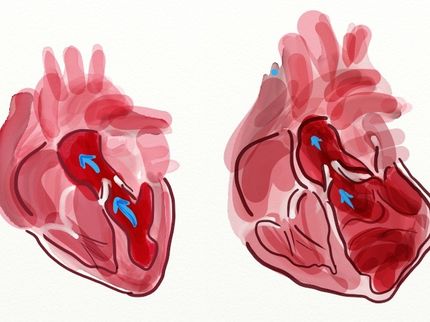Whole genome study reveals clues to solving the mystery behind Kawasaki disease
A study looking at the entire human genome has identified new genes that appear to be involved in making some children more susceptible to Kawasaki disease, according to a new international study published in PLoS genetics . The research team, from The University of Western Australia, the Genome Institute of Singapore, Emma Children's Hospital, The Netherlands, Imperial College London, UK and the University of California San Diego, USA studied naturally occurring genetic variation in almost 900 cases of Kawasaki disease from these countries.
Kawasaki disease is an inflammatory condition in children that affects the mucus membranes, lymph nodes, walls of blood vessels, and the heart. Clinical signs include high fever, rash, and swollen hands and feet with skin peeling. Most importantly, the disease causes damage to the coronary arteries in a quarter of untreated children and may increase the risk of atherosclerosis in early adulthood. The cause of Kawasaki disease is unknown; an infectious etiology is suspected but not proven. There is no diagnostic test and current treatment fails to prevent coronary damage in at least 1 in 10 to 20 children. Kawasaki disease is fatal in approximately 1 in 1000 children.
This is the first genetic study of an infectious disease to examine the whole genome, rather than selected genes. The study shows that genes involved in cardiovascular function and inflammation may be particularly important and some seem to function together. The authors believe these findings could lead to new diagnostics and better treatment and may offer information about adult cardiovascular disease as well.
However, the findings do not yet prove that the new genes are functionally involved. Other genetic variants may be important, especially in different ethnic groups. The authors are now planning detailed studies of the function of these genes and larger collaborative studies including East Asian populations, who are at particular risk of Kawasaki disease, with 1 in 150 Japanese children affected.
Original publication: Burgner D, Davila S, Breunis WB, Ng SB, Li Y, et al.; "A Genome-Wide Association Study Identifies Novel and Functionally Related Susceptibility Loci for Kawasaki Disease."; PLoS Genet 2009, 5(1).
Most read news
Topics
Organizations
Related link
Other news from the department science

Get the analytics and lab tech industry in your inbox
By submitting this form you agree that LUMITOS AG will send you the newsletter(s) selected above by email. Your data will not be passed on to third parties. Your data will be stored and processed in accordance with our data protection regulations. LUMITOS may contact you by email for the purpose of advertising or market and opinion surveys. You can revoke your consent at any time without giving reasons to LUMITOS AG, Ernst-Augustin-Str. 2, 12489 Berlin, Germany or by e-mail at revoke@lumitos.com with effect for the future. In addition, each email contains a link to unsubscribe from the corresponding newsletter.























































